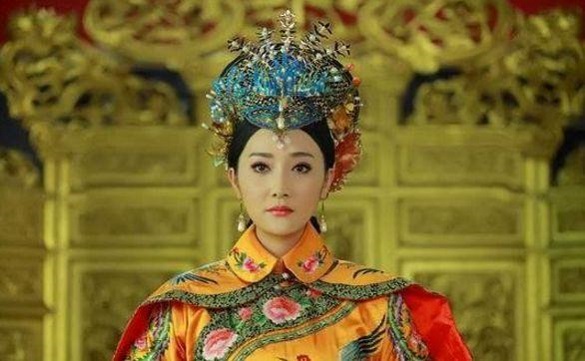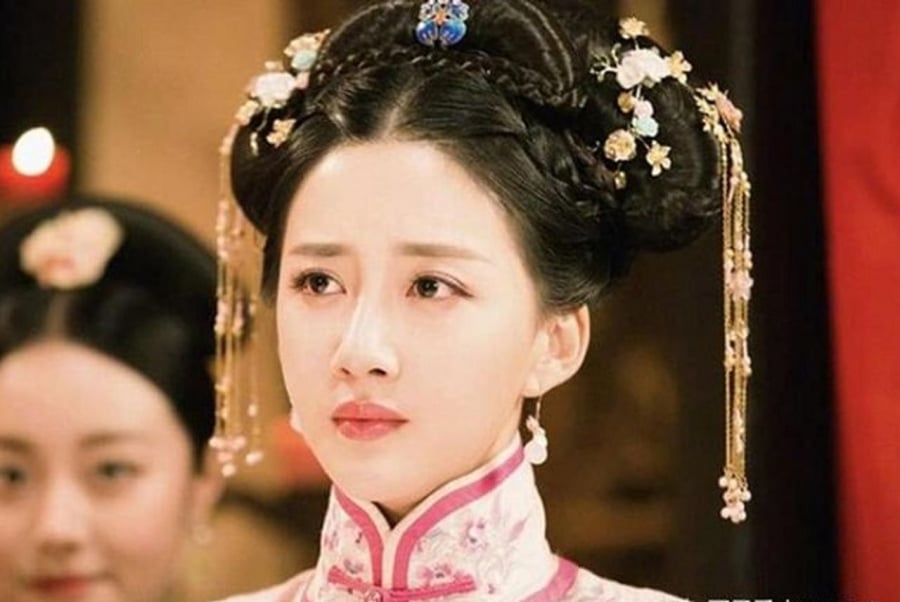In the fierce harem of ancient feudalism, many tense underground battles were fought outside the battlefield. History records that Queen Hieu Khang Duong Giai was the shortest-lived queen in the Qing Dynasty. She died when she was 23 years old, just one year after her son ascended the throne.
Lineage and background of Queen Hieu Khang Duong Giai
Queen Hieu Khang Duong Giai was born on February 8th (L), with the surname Duong Giai, originally belonging to the Ching Lan Han army. Later, her family name was merged with the Manchurian native land, specifically the Manchurian So Huang land. Many legends claim that Queen Hieu Khang Duong Giai was of Han descent, but according to the origin of the Duong Giai family, this is not true.

Queen Hieu Khang Duong Giai, with a good background and a certain position.
Queen Hieu Khang Duong Giai, with a good background and a certain position. Her original family name was not Duong Giai, but Duong. Her grandfather was Duong Duong Chan, a wealthy merchant who made significant contributions to helping Nurhaci defeat the Ming Dynasty.
Moreover, Duong Duong Chan’s sons also fought for Nurhaci everywhere. The Duong Giai family was considered one of the important families in the early years of the Qing Dynasty. However, the social status of Duong Giai Thi was still lower than many other concubines in the harem. This was because she was of Han descent and was always ranked after the families of the Manchurians or Mongols.
The shortest-lived queen in the Qing Dynasty
In the 10th year of Thuan Tri (1653), Duong Giai Thi, then 13 years old, entered the palace and held the title of Thu Phi. However, at that time, the person favored by Emperor Thuan Tri was not Duong Giai Thi, but Dong Nac Phi. Although she did not have a high position in the harem, Duong Giai Thi was fortunate to give birth to a prince named Huyen Diep, who later became Emperor Kangxi.
In the 18th year of Thuan Tri, Emperor Thuan Tri died of smallpox. Originally, Dong Nac Phi’s son had the opportunity to inherit the throne. However, Empress Chieu Thanh Thai did not like Dong Nac Phi. The reason was that after Dong Nac Phi’s death, Emperor Thuan Tri neglected state affairs due to extreme sorrow.
At that time, the Qing Dynasty was afraid of the smallpox epidemic. Empress Chieu Thanh Thai made the excuse that Dong Nac Phi’s son had never had smallpox, and the risk of suffering the same fate as Emperor Thuan Tri was high. On the other hand, Huyen Diep was a child who had survived smallpox miraculously, so he was ultimately chosen as the heir when he was only 8 years old, and his reign title was changed to Kangxi.

Queen Duong Giai Thi, not long after becoming empress, suddenly died of a mysterious illness in the second year of Kangxi (1663).
After ascending the throne, Emperor Kangxi honored Duong Giai Thi as the Tu Hoa Empress. To enhance the reputation of the family externally, Emperor Kangxi merged the Duong Giai lineage from Ching Lan Han to the Manchurian native land, specifically the Manchurian So Huang land.
In addition, Emperor Kangxi also trusted talents from his maternal family to share his political power. The Duong Giai family, thanks to this, gradually gained influence under the Qing Dynasty. However, Duong Giai Thi was not fortunate enough. Not long after becoming empress, Duong Giai Thi suddenly died of a mysterious illness in the second year of Kangxi (1663), when she was nearly 24 years old. She was the shortest-lived empress in the history of the Qing Dynasty.
According to the Qing Dynasty annals, Emperor Kangxi was extremely devastated by his mother’s death, causing the Empress Dowager to console him many times.
In May of that year, Emperor Kangxi honored his biological mother with the title Hieu Khang Tu Hoa Trang Y Cung Hue Sung Thien Duc Thanh Empress. Later, Emperor Yongzheng and Emperor Qianlong added more titles, so the full title of Duong Giai Thi was Hieu Khang Tu Hoa Trang Y Cung Hue On Muc Doan Tinh Sung Van Dục Thanh Chương Queen, or commonly known as Queen Hieu Khang Duong Giai.





































